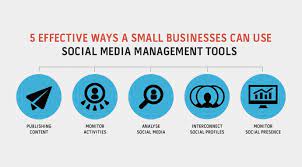Keyword optimization is a crucial aspect of search engine optimization (SEO) that can significantly impact the visibility and ranking of a website on search engine results pages. By strategically incorporating relevant keywords into website content, meta tags, and other elements, businesses can improve their chances of being discovered by users searching for products or services online.
When it comes to keyword optimization, research is key. It’s essential to identify the most relevant and high-performing keywords related to your business or industry. Tools like Google Keyword Planner, SEMrush, and Ahrefs can help you discover popular search terms and phrases that potential customers are using to find information online.
Once you have identified your target keywords, it’s important to strategically place them throughout your website content. This includes incorporating keywords into page titles, meta descriptions, headers, image alt text, and within the body of your text. However, it’s crucial to maintain a natural flow of language and avoid “keyword stuffing,” which can harm your SEO efforts.
In addition to on-page keyword optimization, off-page strategies such as building backlinks with anchor text containing relevant keywords can also boost your website’s search engine ranking. By earning links from reputable websites that use your target keywords as anchor text, you signal to search engines that your site is a valuable resource in its field.
Regularly monitoring and analyzing the performance of your chosen keywords is essential for successful keyword optimization. Tools like Google Analytics and Google Search Console can provide insights into how well your keywords are performing in driving organic traffic to your site and converting visitors into customers.
In conclusion, effective keyword optimization is a fundamental component of any SEO strategy aimed at improving a website’s visibility in search engine results. By conducting thorough keyword research, strategically implementing keywords throughout your site, and monitoring performance metrics, businesses can enhance their online presence and attract more organic traffic.
Mastering Keyword Optimization: 7 Essential Tips for Boosting Your SEO Strategy
- 1. Conduct thorough keyword research to identify relevant and high-traffic keywords.
- 2. Use long-tail keywords for more specific targeting and higher conversion rates.
- 3. Place keywords strategically in page titles, meta descriptions, headers, and content.
- 4. Avoid keyword stuffing, as it can harm your website’s SEO performance.
- 5. Regularly monitor keyword performance and make adjustments based on analytics data.
- 6. Utilize variations of keywords to capture a broader range of search queries.
- 7. Keep up with search engine algorithm updates to adapt your keyword strategy accordingly.
1. Conduct thorough keyword research to identify relevant and high-traffic keywords.
To enhance the effectiveness of your SEO efforts, it is essential to conduct thorough keyword research to pinpoint relevant and high-traffic keywords. By identifying the specific terms and phrases that potential customers are using to search for products or services in your industry, you can tailor your website content to align with their search intent. This strategic approach not only helps improve your website’s visibility on search engine results pages but also increases the likelihood of attracting qualified organic traffic that is more likely to convert into valuable leads or customers.
2. Use long-tail keywords for more specific targeting and higher conversion rates.
Utilizing long-tail keywords is a valuable strategy in keyword optimization as it allows for more precise targeting and can lead to higher conversion rates. Long-tail keywords are typically longer and more specific phrases that capture the intent of a user’s search query more accurately. By incorporating these detailed keywords into your website content, you can attract visitors who are actively seeking the products or services you offer. This targeted approach not only helps drive qualified traffic to your site but also increases the likelihood of converting these visitors into customers due to the alignment between their search intent and your offerings.
3. Place keywords strategically in page titles, meta descriptions, headers, and content.
To optimize keywords effectively, it is essential to strategically place them in key areas of your website, such as page titles, meta descriptions, headers, and content. By incorporating relevant keywords in these critical elements, you can signal to search engines the focus of your content and improve your chances of ranking higher in search results. Ensuring that keywords are naturally integrated into these areas not only enhances the readability of your content but also increases the likelihood of attracting organic traffic from users searching for information related to those keywords. By following this tip and strategically placing keywords throughout your website, you can enhance your SEO efforts and drive more visibility to your online presence.
4. Avoid keyword stuffing, as it can harm your website’s SEO performance.
Keyword stuffing, the practice of excessively using keywords in an unnatural manner throughout website content, should be avoided at all costs as it can have a detrimental impact on your website’s SEO performance. Search engines penalize websites that engage in keyword stuffing by lowering their ranking or even removing them from search results altogether. Instead, focus on incorporating keywords naturally and strategically into your content to ensure a positive user experience and improve your website’s visibility in search engine results pages.
5. Regularly monitor keyword performance and make adjustments based on analytics data.
Regularly monitoring keyword performance and making adjustments based on analytics data is a critical tip for successful keyword optimization. By tracking how well your chosen keywords are performing in driving traffic and conversions, you can identify trends, strengths, and areas for improvement. Analyzing analytics data allows you to stay informed about which keywords are resonating with your target audience and which ones may need refining. Making strategic adjustments based on this data ensures that your keyword optimization efforts remain effective and aligned with your overall SEO goals.
6. Utilize variations of keywords to capture a broader range of search queries.
To maximize the impact of keyword optimization, it is essential to utilize variations of keywords to capture a broader range of search queries. By incorporating synonyms, related terms, and long-tail keywords into your content and meta tags, you can attract a more diverse audience and increase the chances of your website appearing in relevant search results. This strategy not only helps improve your site’s visibility but also enhances its relevance to users searching for information across different search queries, ultimately driving more organic traffic to your website.
7. Keep up with search engine algorithm updates to adapt your keyword strategy accordingly.
Staying informed about search engine algorithm updates is essential for adapting your keyword strategy to remain effective and competitive. Search engines like Google frequently update their algorithms to improve search results and user experience, which can impact how keywords are ranked and indexed. By keeping up with these updates, you can adjust your keyword optimization strategy to align with the latest best practices and ensure that your website continues to perform well in search engine results pages. This proactive approach will help you stay ahead of the curve and maintain a strong online presence in an ever-evolving digital landscape.



